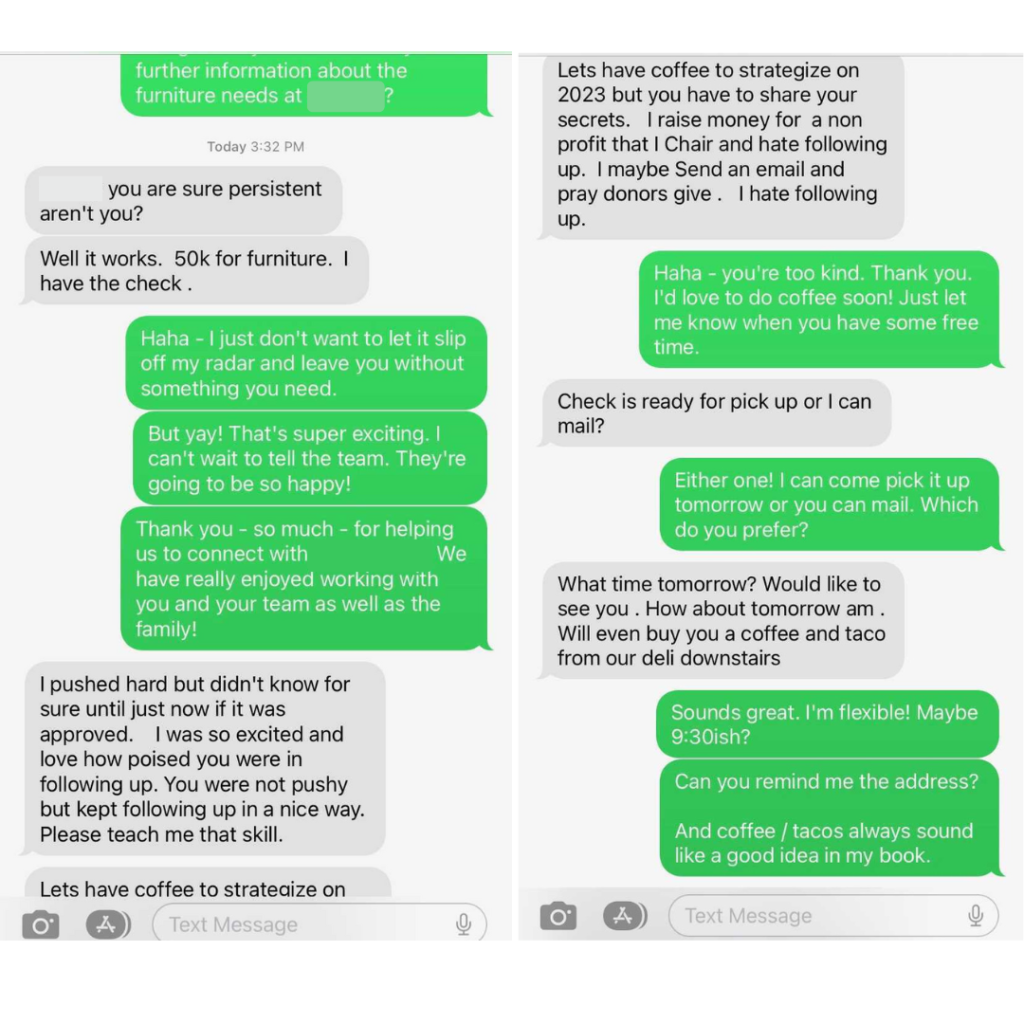I’m going to go out on a limb and say that most frontline fundraisers don’t know their donor’s communication preferences, and they don’t like reaching out to donors personally.
I know, I know… you probably think I’m losing it, but from all the years of working with MLOs, MGOs, and PGOs, these are two common problems related to how fundraisers communicate with donors that we run into at Veritus. I’m going to name them here again:
-
They don’t know the donor’s communication preference, and
-
They don’t consistently communicate on a personal level.
Richard and I would say, aside from making sure you qualify your entire caseload and learning your donor’s passions and interests, understanding how your donor wants to be communicated with is one of the most important things you have to do with your portfolio. As you know, your work is to know your donor.
If you’re sending your donor emails and they want to only talk on the phone, you’re telling your donor you don’t know them. Or if they tell you they only want to hear from you once a year, and you’re sending them information every month, the donor is thinking, “They are not listening and don’t value my time… or me!”
The second issue, not personally communicating, is also a huge problem. We find at Veritus, that frontline fundraisers will create any kind of excuse not to reach out to donors.
The number one excuse is that “I don’t want to bother the donor.”
You create a story in your head, that donors don’t like to be bothered. So, you might try once to reach out to them and then wait weeks or months to follow up. This will not work if you want to successfully cultivate a relationship with a donor. Most donors WANT to hear from you. They want to know how their gifts have made a difference, they want to be thanked, they want to be asked for a gift. They want to hear your voice and see your face.
The best mid, major, and planned giving officers know how to communicate with their donors. They have the EQ to know the right cadence, to know the right opportunity, and the best way to convey information.
It all starts with having good listening skills and curiosity. They are essential if you are going to be a great communicator with your donor. But unfortunately, I run into too many fundraisers who have created this story in their heads that their donors don’t want to be bothered. So, what do they do?
Instead of a phone call, they send an email. Rather than a face-to-face visit, they mail a proposal. Instead of engaging the donor in a text conversation, they send a newsletter. All to avoid connecting with the donor for fear that the donor will get upset.
I want you to read an actual text conversation that one of the fundraisers we work with had with a lawyer for a family foundation. The fundraiser had done a tremendous job of following up and the lawyer acknowledges this. You see how amazing this is. And, because of her persistence, the donor gave $50,000! That’s how you do it.
You see how amazing this is. And, because of her persistence, the donor gave $50,000! That’s how you do it.
If you need any other convincing that to be successful, you must overcome these two problems, just ask any good salesperson in the for-profit world. Every good salesperson I’ve known will say the key is knowing your customer, how they like to be communicated with, and to be persistent in that communication.
It works, every time.
So, if you hear that little voice in your head, telling you not to “bug” your donor, ignore it, communicate in the right way, and see the relationship blossom.
Jeff
![Are You Making Up Stories About How Your Donor Doesn’t Want to Hear from You? A woman is thinking and frowning. [Are You Making Up Stories About How Your Donor Doesn't Want to Hear from You?]](https://veritusgroup.com/wp-content/uploads/2023/01/AdobeStock_101883904-scaled.jpeg)

![A man peering into a microscope. How to Approach Fundraising When Your Mission Doesn't Fit in a Neat Box [Podcast Episode]](https://veritusgroup.com/wp-content/uploads/2022/09/Podcast-Episode-Blog-Post-Header-Image-3.png)



0 Comments